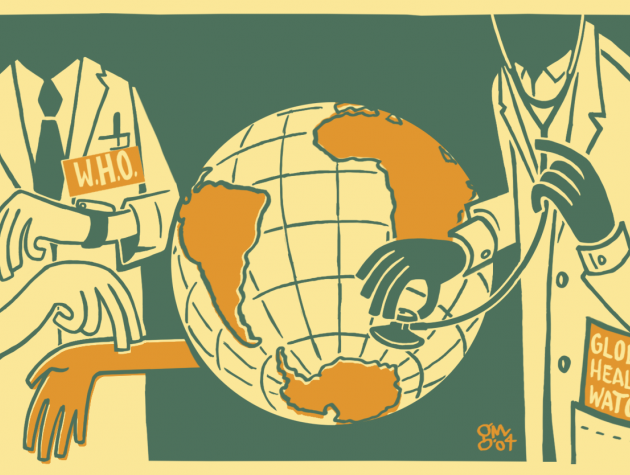Oxford AIDS Research Day
On 26 November, GEG co-hosted Oxford AIDS Research Day with the Center for Interdisciplinary AIDS research (CAIRO). Keynote speaker Mark Heywood’s presentation “Not the ‘end of AIDS’ – Moving from Quantity to Quality in Order to Sustain the Results of Global AIDS Activism” is available as a podcast here. A full summary of the day is also available below.
Event Summary
Along with the Centre for AIDS Interdisciplinary Research at Oxford (CAIRO) at the Department of Social Policy and Intervention, and the Blavatnik School of Government, GEG organised the 4th annual Oxford Student HIV/AIDS Research Day on November 26, 2012. Nearly 40 students and University members from University of Oxford, Imperial College London, School of Oriental and Asian Studies and London School of Economics interested in HIV/AIDS research issues came together at the Swire Room, University College for a rich afternoon of sessions.
The event, fully organised by a group of post-graduate students from the departments of Social Policy and Intervention, Public Health, and Medical Sciences Division (see Annex 1 for a list of names), included a key note speech by Mark Heywood, executive director of Section 27, group discussions facilitated by student organisers, a networking and mini-poster session, and student research presentations. The main objective of the day was to study how the global health system can work better for those affected and living with HIV/AIDS with a particular focus on issues related to drug pricing, ensuring access to the right treatment and how we measure progress to capture both quantitative and qualitative indicators. In addition, attention was given to the global institutions such as the Joint UN Programme on HIV/AIDS (UNAIDS) and the World Health Organization (WHO) which lead global efforts and support national strategies.
Keynote Speaker
The event’s keynote speaker was Mr. Mark Heywood, the Executive Director of SECTION27, a public-interest law centre based in Johannesburg, South Africa that aims to influence, develop and use the law to promote and advance human rights, especially those related to health and basic needs. His speech, entitled Not ‘the end of AIDS’ – Moving from Quantity to Quality in Order to Sustain the Results of Global AIDS Activism, generated discussion on various topics from practices and policies on the disclosure of HIV status, ways in which we can normalise the HIV/AIDS epidemic and what interventions should and could be prioritized in South Africa given the status of the healthcare system.
Mr. Heywood stemmed his speech off the current rhetoric of UNAIDS World AIDS day and other reports proclaiming the end of AIDS, by looking at the reality of HIV/AIDS in South Africa where substantial progress had been made but serious problems threaten success. Despite major positive gains attained to date, his speech warned that we are entering a different period of the HIV epidemic, where there might be a lot of backsliding and losses on the progress made to date, particularly with regards to the uptake of HIV prevention such as: male circumcision, condom use, etc. New challenges have emerged which threaten to unravel progress, including: (i) side effects of medication, (ii) retention in care of HIV-positive patients taking ARVs, (iii) challenges with adherence, (iv) human rights, and (v) the weakening of civil society.
Despite major gains in HIV testing in South Africa, a major issue remains retention in care. Mr. Heywood argued that “because (most) governments and the United Nations have paid insufficient attention to the quality of HIV prevention and treatment programmes, dynamite has been built into the edifice of the AIDS response – and the clock is ticking.”
Group Discussions
The next session of the day involved small-group discussions on current controversial questions related to HIV/AIDS. Each of the three breakout groups was facilitated by a student organizer, and participants divided themselves evenly among the three groups for a 25 minute discussion. The breakout groups focused on answering the questions: (i) “Is qualitative research worth funding?”, (ii) “Funding for HIV: The Good, The Bad, and The Ugly”, and (iii) A recipe for HIV prevention. The first group discussed issues related to the polarization between quantitative and qualitative research hindering progression toward tackling HIV/AIDS issues, and how to bridge this gap between the qualitative and the quantitative, despite the current funding environment which emphasises reporting on numbers, and the ways in which qualitative research can be useful for better understanding complex phenomena. The second group discussed the impact of global funding agencies pumping enormous amounts of money into vertical problems specifically targeting HIV. The group debated the implications of these programs on countries’ existing healthcare systems, and whether it would be more beneficial to focus on strengthening healthcare systems overall. The third group was tasked with answering questions about the most effective prevention interventions and how we can accommodate all different types of interventions (social/behavioral, medical, structural) in advancing toward HIV prevention. This discussion carried over to the larger group, where participants launched into a debate about the acceptability of certain types of prevention methods versus others and how interventions can be made more acceptable and sustainable.
Student Presentations
The last session of the day, participants were treated to six student research presentations. Subject areas ranged from risk factors for child abuse in HIV-affected families in South Africa to AIDS activism in the United States to pathways to HIV diagnosis in circular migrants in north India.
The first student researcher, Franziska Meinck, identified several risk and protective factors for child abuse in high HIV-prevalence communities in South Africa, including bullying, AIDS-related stigma, having the mother as a co-resident (risk), positive parenting, and access to basic necessities (protective). Discussion ensued about why having the mother as a co-resident might increase the risk of child abuse. The second presentation by Tanvi Rai focused on elucidating pathways for HIV diagnoses among circular migrants in north India. Through in-depth qualitative research, Tanvi found that for women, access to HIV diagnosis and treatment was mediated through their husbands and/or other family members. This led to a lively discussion about the merits and drawbacks of counselling pre- and post- HIV diagnosis, as well as whether or not testing should be voluntary or compulsory. Third, research on HIV and interpersonal conflict in an informal settlement in Mombasa, Kenya was presented by Adam Gilbertson. Adam explored the different relationship characteristics within households that might lead to them experiencing more or less conflict as a result of HIV infection. Sara Belton, of the London School of Economics, presented her research on the impact of changing representations of HIV/AIDS on access to paediatric health services in western Uganda. Her research found that the introduction of HIV treatment is perceived as a positive step for health care workers and people living with HIV. However, stigma and negative social representations of HIV still limit children’s access to treatment, as parents are stigmatised for infecting their children. Fifth, Victor Yang presented his thesis on US-based AIDS activism. As a historian, Victor told the story of ACT UP-New York and ACT UP-Philadelphia, two movements of AIDS activism that were expanded by gay people of colour in majority white organisations. The push for more inclusive forms of AIDS activism facilitated the empowerment of people living with AIDS, and prolonged the domestic AIDS movement in the United States. Finally, Beth Vale presented findings from her Masters’ thesis about community care workers in Cape Town, South Africa. Beth explored the tension that community health workers experience with having both a professional and personal role in the community, particularly in relation to their reputation.
All of the student research presentations provided grounds for fruitful discussion and debate. For students in the audience who are just starting out in their DPhil research, or who are currently studying for a masters’, it was inspiring to learn more about the process of research, as well as the challenges and opportunities. This was a valuable session, as it not only contributed to the discussion about research methodology, but also drew attention to the wide range of issues covered in the field of HIV/AIDS research.
Overall Summary
Key points of the debate included whether HIV should be treated with urgency or be normalized and approached as a chronic disease. Debates on how to best do this through the current healthcare systems in low resource settings were rich in alternatives and challenges. In particular, the value of evidence: both qualitative and quantitative, in elucidating impact, causal pathways and providing a voice to the most affected was discussed in light of group discussions and student presentations. Furthermore, participants discussed allocating financial resources with regards to research and development of prevention and treatment solutions, health system strengthening versus disease specific interventions, and targeted versus general application of HIV-specific services in the population. Last but not least, access to and retention in treatment, particularly issues of long-term adherence remain a major challenge for healthcare systems, particularly in low-resource settings.
Annex 1 – Organising Committee
Student Organisers (in alphabetic order):
Anushree Shiroor, Department of Public Health
Ben Verboom, Department of Social Policy and Intervention
Carly Huddelson, Department of Social Policy and Intervention
Dawei Wu, Department of Public Health
Ferrah Raza, Department of Social Policy and Intervention
Kenneth Masamaro, Department of Public Health
Lana Yoo, Department of Social Policy and Intervention
Osamah Khojah, NDM Experimental Medicine
Robert Kyeyagalire, Department of Public Health
Rocio Herrero Romero, Department of Social Policy and Intervention
Sindhu Ravishankar, Oxford Department of International Development
Zoë Uffindell, Department of Social Policy and Intervention
Student Advisors
G.J. Melendez-Torres, Department of Social Policy and Intervention
Elona Toska, Department of Social Policy and Intervention
Academic Advisors
Dr. Lucie Cluver, Department of Social Policy and Intervention
Dr. Devi Sridhar, Global Economic Governance Programme, Blavatnik School of Government
Dr. Mark Boyes, Department of Social Policy and Intervention





